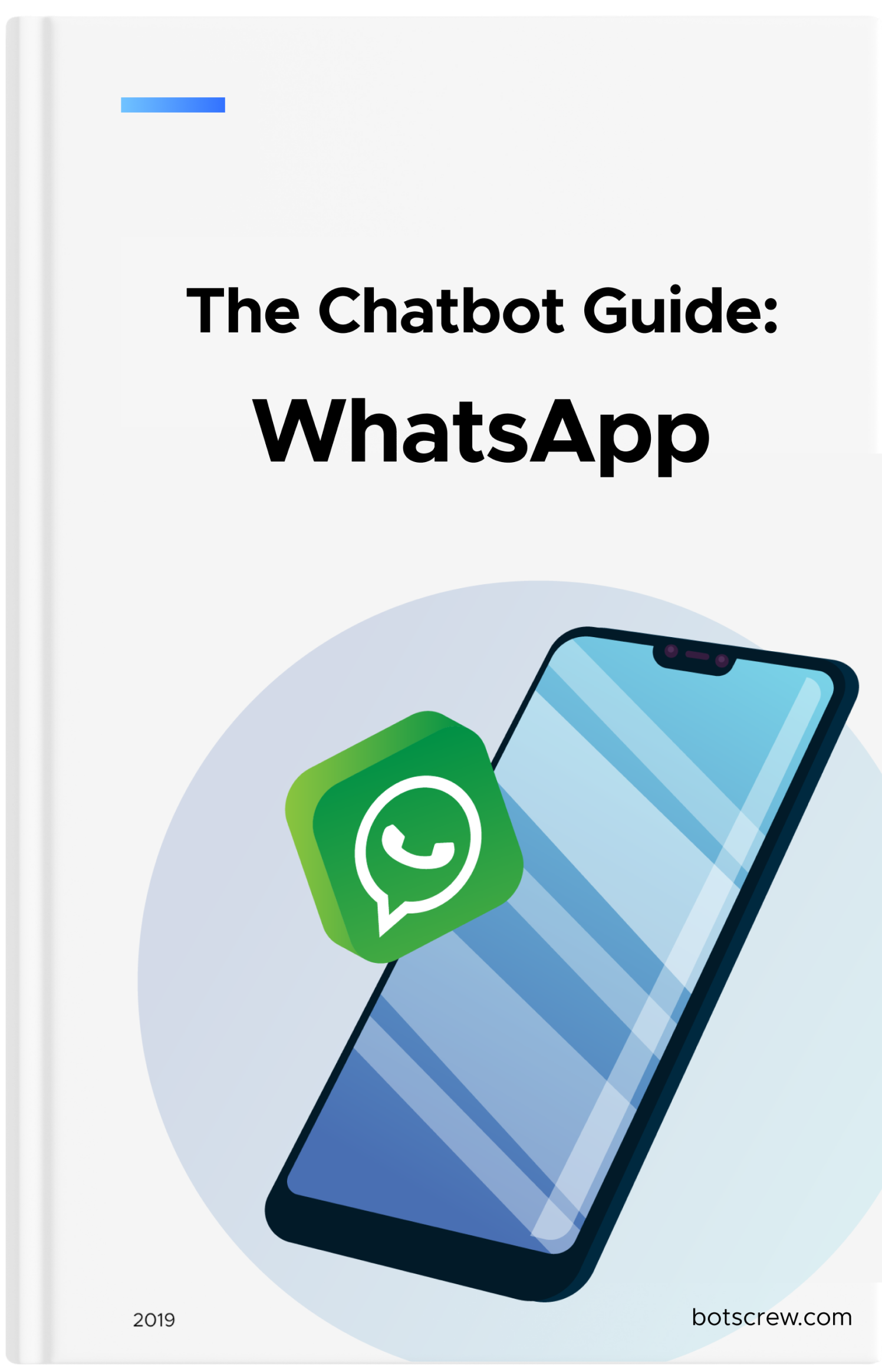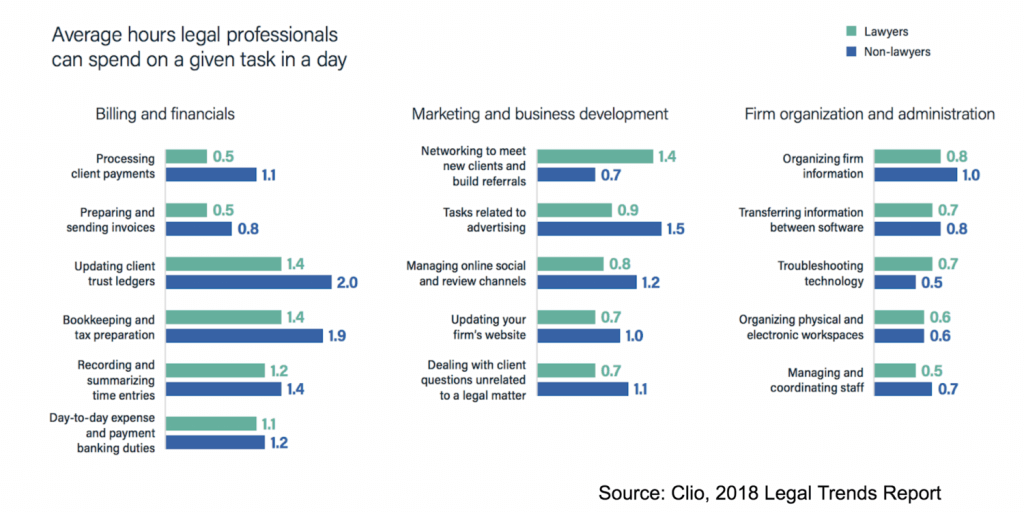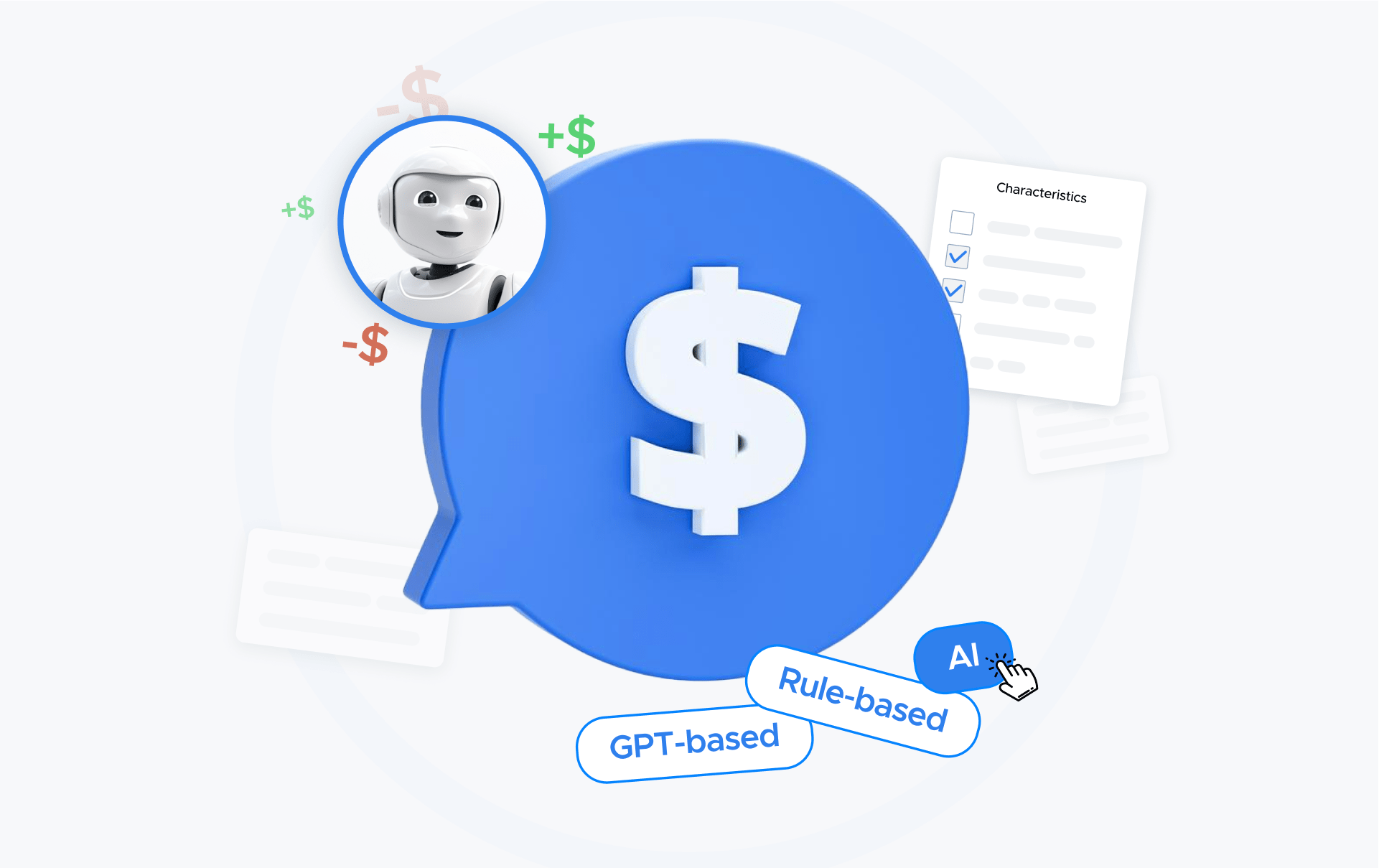Boosting Law Firm Profitability with Generative AI and Legal Chatbots
In the fast-changing legal landscape, law firms struggle to balance routine tasks with billable work. This article examines how generative AI for law firms and legal chatbots can help improve efficiency, enhance client satisfaction, and boost profitability.
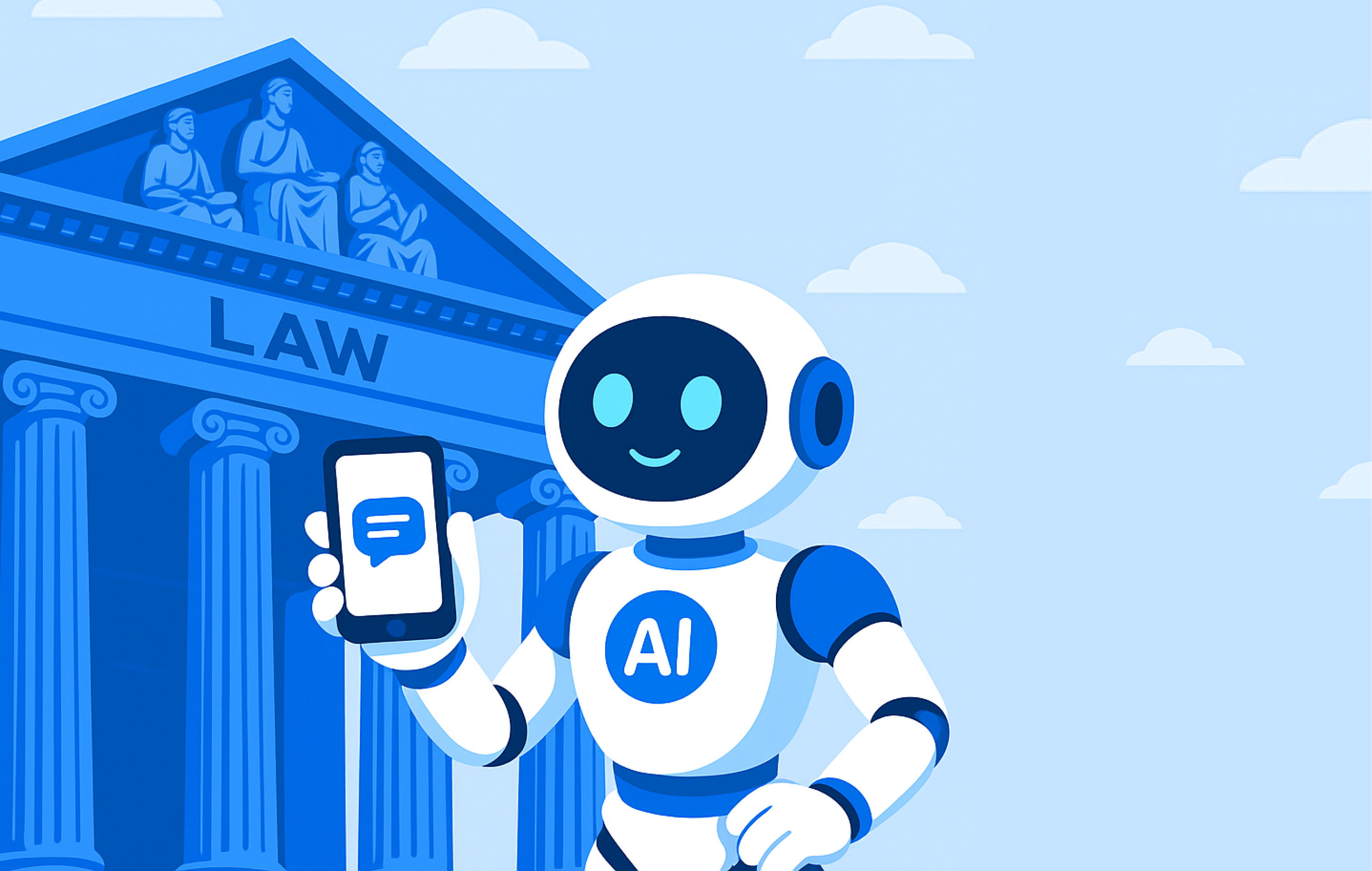
Law firms are under constant pressure to reduce billable-hour leakage, handle a growing volume of client inquiries, and deliver fast, accurate advice — without inflating costs. Manual processes and repetitive tasks often drain attorney time, leading to delayed responses and frustrated clients.
This is where chatbots for law firms come in. Powered by generative AI, legal chatbots automate routine interactions, draft standardized documents, and provide 24/7 support, allowing firms to focus on complex legal work while improving client satisfaction and profitability. In this article, we'll explore how legal AI chatbots can transform your law firm — covering use cases and strategies to implement them successfully.
The Challenge: Routine and Unbilled Tasks
If you manage a law firm, you’re likely familiar with the frustration of seeing your team spend significant portions of their day on non-billable tasks. According to the 2018 Legal Trends Report by Clio, lawyers spend only 30% of their day on billable tasks. This means that only 2.3 hours are typically billable out of an eight-hour workday.
Many lawyers express dissatisfaction with the amount of time they spend on low-value administrative tasks. This leaves them with less time for impactful work, such as client relationship building, business development, and strategic planning, which are crucial for personal satisfaction and firm growth.
For legal professionals, this reality translates into lower productivity and reduced revenue potential. Most law firms seek ways to boost efficiency without compromising client satisfaction. However, with growing workloads and increasing client expectations, lawyers often find themselves working more hours than planned just to keep up.
But what if there was a way to increase revenue, improve client satisfaction, and reduce workloads—all at the same time? The answer lies in generative AI and legal AI chatbots.
Transform Your Practice with AI: Get Started with a Free Consultation!
Generative AI for Law Firms: Transforming the Legal Landscape
Generative AI is making waves in various industries, and the legal field is no exception. By integrating AI in law firms, legal professionals can optimize their operations, save time, and enhance profitability. Generative AI doesn't replace lawyers; instead, it acts as a powerful tool that assists with routine tasks, allowing legal professionals to focus on more complex, billable work.
Key Use Cases of Generative AI in Law Firms
24/7 Client Support and Initial Consultations
Clients increasingly expect around-the-clock availability from their legal advisors. Legal chatbots can help law firms meet these expectations without requiring lawyers to work beyond regular hours. These chatbots can provide initial consultations, answer frequently asked questions, and guide potential clients through basic legal processes at any time of day.
of surveyed customers said they choose a law firm if they promptly answer the first call or email.
Lawyer chatbots can also assist clients by scheduling appointments, sending reminders, and providing updates on case progress. By automating these initial interactions, chatbots free up valuable time for lawyers, allowing them to focus on more complex and billable tasks.
Automated Document Generation
One of the most time-consuming aspects of legal work is document preparation. Generative AI for lawyers can streamline this process by automatically generating legal documents, reports, and briefs based on client-provided information. This not only saves time but also reduces the risk of human error. For instance, legal chatbots can gather necessary details through a conversation with a client and produce a fully drafted document in minutes, ready for review by a human lawyer.
Legal Document Analysis and Review
Reviewing and analyzing contracts, agreements, and other legal documents is another task that AI lawyers can significantly improve. AI tools can quickly scan and evaluate documents, identifying key issues, inconsistencies, or areas that require further attention. This accelerates the review process and ensures that lawyers can focus on more strategic aspects of their cases.
Faster Legal Research
Researching case law and precedents traditionally takes days and requires painstaking attention to detail. Generative AI can transform this process by instantly searching vast databases and summarizing the most relevant information in plain language.
For example, instead of combing through hundreds of pages, a lawyer can ask an AI-powered tool, "Summarize the top three cases relevant to employment discrimination in the last five years," and receive a concise, accurate summary in seconds. This level of speed and precision can significantly improve case preparation and client outcomes.
Enhanced Lead Generation and Qualification
Legal chatbots can also play a significant role in enhancing a firm’s lead generation and qualification processes. Chatbots can gather essential information by engaging potential clients in meaningful conversations, qualify leads based on predefined criteria, and ensure that your firm connects with high-quality prospects. This leads to more efficient client acquisition and a higher likelihood of converting leads into paying clients.
Due Diligence Automation
Conducting due diligence is often a labor-intensive process that involves sifting through large volumes of data. Generative AI for lawyers can automate much of this work, performing thorough investigations, reviewing documents, and generating comprehensive reports. This not only speeds up the process but also ensures a higher level of accuracy and consistency.
Accessing and Organizing Information
Lawyers and paralegals regularly deal with vast amounts of information. AI lawyers can help by quickly scanning large datasets to find relevant laws, regulations, or precedent cases. By integrating AI with your firm’s CRM system, you can easily search through your database to retrieve related lawsuits or other pertinent information in a fraction of the time it would take manually.
Client Communication with Legal Chatbots
Clients expect fast responses, but answering repetitive inquiries — like case status updates or billing questions — takes valuable time away from legal work. AI-powered legal chatbots provide 24/7 support for routine questions, appointment scheduling, and document requests.
Imagine a client messaging your firm at midnight about a case update and getting an instant, accurate response from a legal AI chatbot that's fully integrated with your case management system. This not only enhances client satisfaction but also allows attorneys to focus on high-value work.
Internal Knowledge Management
Law firms manage massive amounts of internal knowledge — policies, procedures, and case studies — that often remain underutilized. Generative AI can organize this data into conversational Q&A formats accessible via internal chatbots.
For instance, a junior associate can type, "What's the latest compliance requirement for GDPR?" and get an instant, accurate answer sourced from updated internal documentation. This makes onboarding and internal training far more efficient.
Benefits of Generative AI for Law Firms
- Increased Efficiency: By automating routine tasks, generative AI frees up time for lawyers to focus on billable work, increasing overall productivity. This means attorneys can dedicate more time to strategy, negotiations, and court preparation rather than paperwork.
- Cost Savings: Chatbots for law firms can handle tasks that would otherwise require additional staff, helping law firms reduce operational costs.
- Enhanced Client Satisfaction: With AI-driven solutions, law firms can offer 24/7 support and faster service, leading to higher client satisfaction.
- Improved Accuracy: Even the most skilled lawyers can overlook details when working under tight deadlines. Generative AI for legal reduces the risk of human error in tasks such as document generation and analysis, ensuring a higher quality of work.
- Scalability: AI software for law firms allows them to scale their operations more effectively, handling larger caseloads without compromising on service quality.
- Better Client Experience: Generative AI-powered chatbots provide 24/7 assistance, answer routine questions, and even share case updates in real time. This proactive approach builds trust and loyalty while reducing client frustration caused by delays in communication.
See How AI Can Work for Your Law Firm—Request a Free Prototype!
Real-life examples of Generative AI for Lawyers
Ailira– Artificially Intelligent Legal Information Research Assistant
AILIRA (Artificially Intelligent Legal Information Research Assistant) is an advanced AI lawyer designed to assist with legal information retrieval, legal document creation, and various aspects of legal research. Developed by Australian legal technology entrepreneur Adrian Cartland and BotsCrew, AILIRA has become a significant tool in making legal services more accessible and affordable, especially for individuals and small businesses.
AILIRA spends on generative a will, compared to 3 hours a lawyer would spend on creating one will.
Key Features and Functions
Legal Information and Research
AILIRA can provide users with legal information and guidance on a variety of topics, including wills and estate planning, business structuring, and tax law. It operates as a virtual assistant, allowing users to ask legal questions in natural language. The AI then processes these queries and provides relevant legal information, much like how a legal researcher might answer a lawyer’s questions.
Document Generation
One of AILIRA’s most powerful features is its ability to generate legal documents. Users can interact with the AI through a simple question-and-answer format, providing the necessary details for the document they need (e.g., a will, contract, or business structure document). AILIRA uses this information to produce a draft document that is legally compliant and tailored to the user’s specific circumstances.
Impact and Benefits
Cost-Effective Legal Services
AILIRA significantly reduces the cost of obtaining legal advice and documents, making legal services more accessible to those who might not otherwise afford them.
Time Efficiency
By automating the legal research and document generation processes, AILIRA saves users and legal professionals time. Users can obtain the information and documents they need quickly, without the lengthy process of consulting a lawyer.
AILIRA has been particularly popular in Australia but has potential applications in other jurisdictions as well. Its development reflects the growing trend of using AI to make legal services more efficient and accessible, particularly in areas where traditional legal advice might be too costly or cumbersome for clients.
See AI in Action: Read the AILIRA Case Study to Discover How AI Transformed Legal Services!
DoNotPay: The World's First Robot Lawyer
DoNotPay is a legal services chatbot created by British-American entrepreneur Joshua Browder. Originally launched in 2015, DoNotPay started as a simple tool to help people contest parking tickets in London and New York City. Since then, DoNotPay has expanded significantly, becoming a comprehensive platform that offers a wide range of legal and consumer services. Often referred to as "the world's first robot lawyer," DoNotPay aims to make legal assistance accessible, affordable, and easy to use for everyone.
Key Features and Functions:
- Parking Ticket Appeals
- Consumer Rights Protection
- Legal Document Generation
- Subscription and Bill Management
- Small Claims Court Filings
- Immigration Assistance
Impact and Benefits
Accessibility and Affordability
DoNotPay has democratized access to legal services by providing a low-cost, user-friendly alternative to traditional legal assistance. Many of the services offered by the platform are free or come at a nominal fee, making it accessible to a wide audience.
Convenience
By automating complex legal processes, DoNotPay simplifies handling legal matters for users. The chatbot guides users through each step, ensuring they can confidently navigate legal systems.
Empowerment
DoNotPay enables individuals to take charge of their legal matters, whether it's challenging unjust fees or seeking restitution in small claims court.
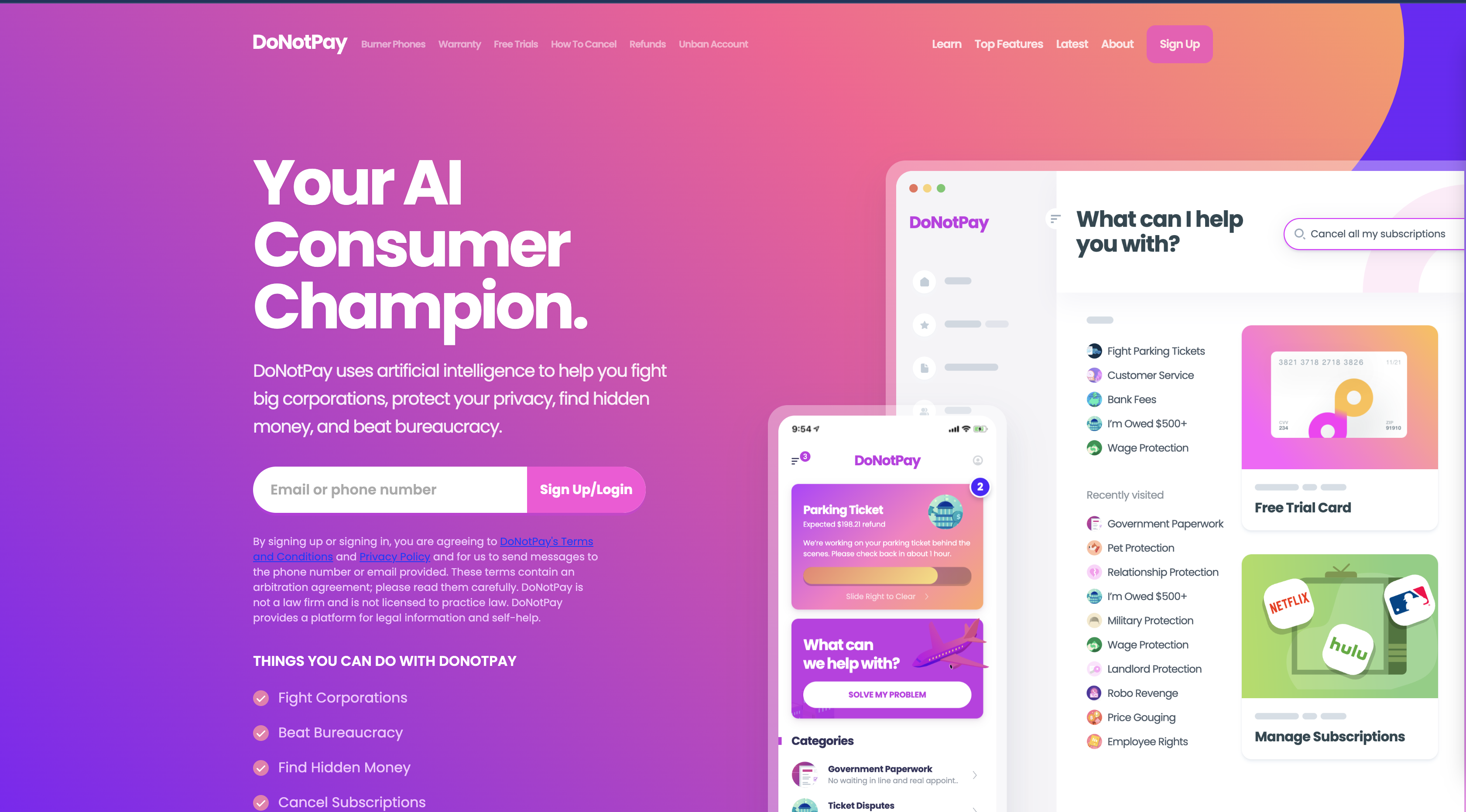
ROSS Intelligence: The AI-Powered Legal Research Assistant
ROSS Intelligence was one of the pioneering AI platforms specifically designed to assist lawyers with legal research. Founded in 2014 by a group of entrepreneurs including Andrew Arruda, Jimoh Ovbiagele, and Pargles Dall’Oglio, ROSS was developed on IBM's Watson supercomputer, utilizing natural language processing (NLP) to revolutionize the way legal professionals conduct research.
Key Features and Functions:
AI-Powered Legal Research
ROSS Intelligence was designed to help lawyers quickly find relevant case law, statutes, and legal opinions by simply asking questions in plain English. The platform could analyze a query, understand its context, and return precise legal information and relevant citations within seconds.
This capability significantly reduced the amount of time lawyers spent searching through legal databases and documents, allowing them to find answers more quickly and with greater accuracy.
Document Analysis
Aside from answering research questions, ROSS could also help with reviewing and analyzing legal documents. Lawyers would be able to upload contracts, briefs, or other legal documents, and ROSS would highlight key issues, suggest relevant case law, and even flag potential risks or inconsistencies.
Impact and Benefits
Increased Efficiency
ROSS significantly reduced legal research time, enabling lawyers to focus on strategy and client interaction, resulting in cost savings for law firms and improved client service.
Improved Accuracy
By utilizing AI to analyze extensive legal data, ROSS assisted attorneys in identifying the most pertinent and accurate case law, thereby decreasing the risk of overlooking crucial information.
Accessibility
ROSS has made sophisticated legal research more accessible to smaller law firms and solo practitioners, who may not have the resources to employ large teams of researchers.
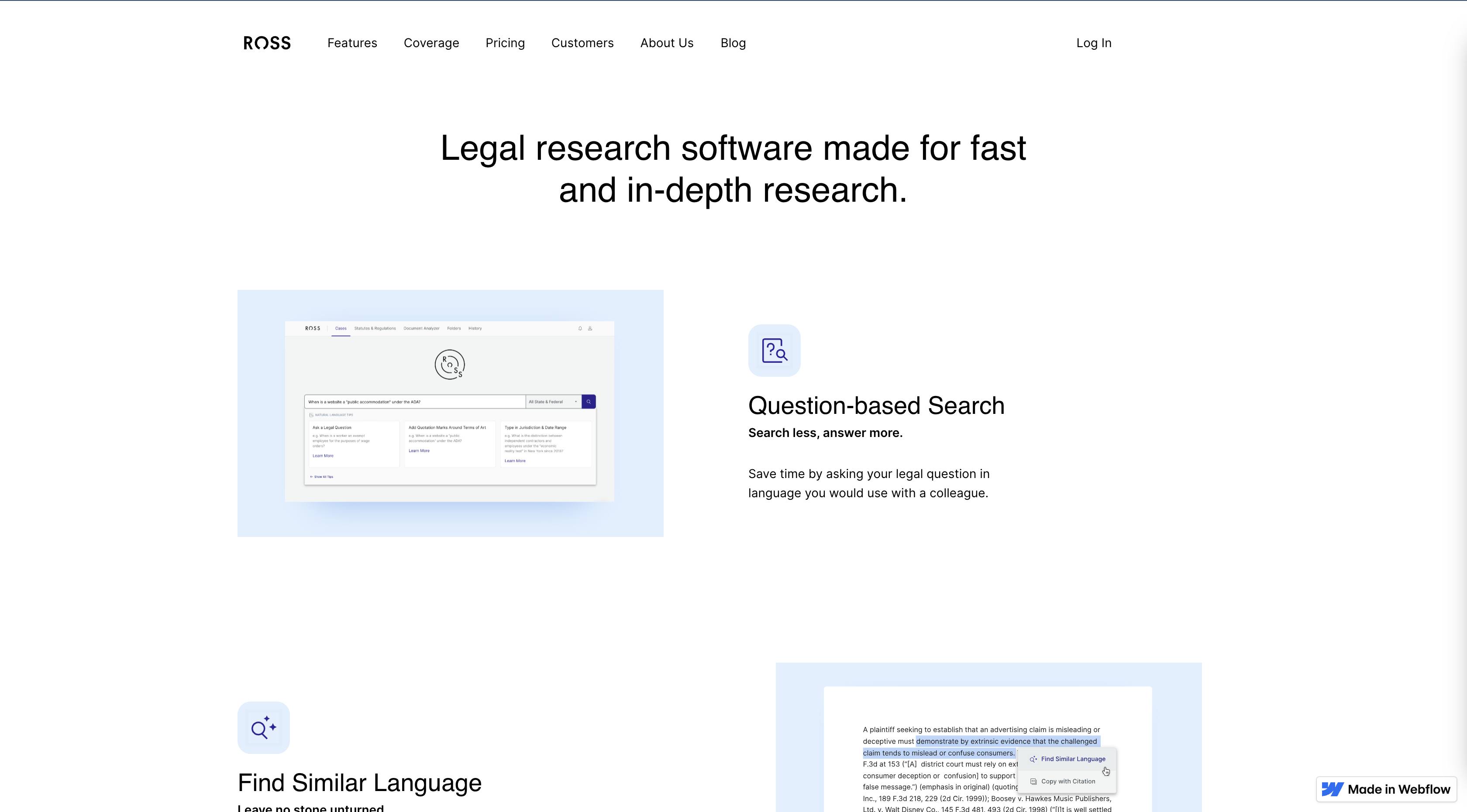
Future Trends in Legal Chatbots & AI
The legal industry is entering a new era where legal chatbots and AI-powered tools are no longer just experimental — they are strategic assets. Forward-thinking law firms are leveraging these technologies to improve efficiency, client experience, and profitability. Here is a closer look at emerging trends, with real-world examples:
Multilingual Support for Global Clients
With globalization, law firms increasingly serve clients across borders. Advanced chatbots for law firms now support multiple languages, enabling seamless communication with international clients.
Example: A multinational law firm implemented a legal AI chatbot that could answer client queries in English, German, and French. Clients could upload contracts or ask questions in their native language, and the chatbot provided instant guidance. The firm reported a 30% increase in client satisfaction scores, as language barriers were no longer an obstacle.
Voice-Based Legal Assistants
The next generation of law firm chatbots goes beyond typing — voice interaction is becoming a major trend. Voice-enabled AI legal assistant chatbots allow lawyers and clients to ask questions, retrieve documents, and summarize cases hands-free.
Example: At a mid-sized corporate law firm, attorneys began using a legal AI chatbot integrated with their case management system. By asking the chatbot verbally, "Summarize the latest NDA clauses for client X," lawyers received instant summaries while commuting or reviewing documents. This reduced research time by 40% and increased billable hours on high-value tasks.
AI-Powered Predictive Legal Analytics
Modern AI chatbots for legal advice are now combining natural language understanding with predictive analytics. These systems analyze historical case data to forecast potential outcomes, identify legal risks, and recommend strategies.
Example: A litigation-focused firm used a legal AI chatbot to analyze past employment discrimination cases. The chatbot highlighted patterns in rulings and suggested likelihoods of success for ongoing cases. Attorneys leveraged this insight to refine strategy, resulting in a 25% higher settlement success rate.
Integration with Virtual Court Systems and E-Filing
The most advanced AI legal assistant chatbots are integrating directly with e-filing systems and virtual court platforms, automating routine filings and tracking deadlines.
Example: A real estate law firm deployed a legal AI chatbot that automatically prepared and submitted documents for routine property disputes. It then updated the legal team in real time about filing confirmations and upcoming deadlines. This cut administrative workload by 50% and reduced missed deadlines to zero.
More Personalized Client Experience
Future law firm chatbots will leverage AI to provide highly personalized interactions. From onboarding new clients to offering proactive advice, chatbots will act as 24/7 digital assistants, ensuring clients feel supported at every stage.
Example: A boutique intellectual property firm uses a legal AI chatbot that guides clients through trademark applications. The chatbot reminds clients of renewal dates, explains each step in plain language, and can even draft preliminary documents. This personalized approach improved client retention by 20%.
Law firms that adopt legal chatbots, AI legal assistant chatbots, and other AI-powered solutions are not just automating tasks — they are creating a smarter, more responsive, and client-centric practice. By embracing these trends now, firms position themselves as leaders in a digital-first legal landscape.
Curious About AI Solutions for Your Practice? Get a Free Consultation!
Tips for Implementing Generative AI in Your Law Firm
- Identify the Right Use Cases First: Start small and focus on high-impact areas where AI can bring quick wins — such as automated document drafting, client intake, or legal research. This allows your team to experience immediate benefits without overwhelming them with change.
- Start small: Begin with a single use case, for example, a chatbot for a law firm that addresses clients' FAQs, schedules meetings, or automates document generation. As your team becomes more comfortable with the technology, you can gradually expand AI capabilities.
- Start small: Begin with a single use case, for example, a chatbot for a law firm that addresses clients' FAQs, schedules meetings, or automates document generation. As your team becomes more comfortable with the technology, you can gradually expand AI capabilities.
- Define Chatbot Requirements: When implementing a legal chatbot, it's crucial to clearly define its requirements. Determine the specific tasks it should handle, such as client intake, legal research, or case updates. Ensure it is designed to provide accurate legal information, comply with relevant regulations, and integrate seamlessly with your firm's existing systems. Also, consider multilingual capabilities if your firm serves a diverse client base.
- Choose the Right Technology Partner: Not all AI vendors understand the legal industry's complexity. Work with providers experienced in building chatbots for law firms and generative AI solutions tailored for legal processes. Look for transparency, customizability, and ongoing support.
- Integrate with Existing Systems: Ensure that your AI tools are compatible with your firm’s existing software and workflows to maximize efficiency.
- Train Your Team: Provide training sessions for your staff to familiarize them with AI tools and help them understand how to leverage these technologies effectively.
- Monitor and Optimize: Continuously monitor the performance of AI-driven solutions and make adjustments as necessary to ensure they achieve the desired results.
Conclusion
Integrating generative AI and legal chatbots into your law firm’s operations can significantly enhance efficiency, reduce costs, and improve client satisfaction. By automating routine tasks and providing round-the-clock support, these AI-driven solutions allow lawyers to focus on what matters most: delivering high-quality legal services to their clients.
Legal AI with BotsCrew
Security and Compliance
We ensure that our AI products meet the highest security standards and are fully compliant with regulations like GDPR and ISO, safeguarding your sensitive legal data.
Extensive AI Experience
With over 8 years of AI experience and 2+ years in generative AI, we've successfully delivered 25+ projects, making us experts in creating impactful AI solutions.
Customer-Centric Approach
We focus on your success by starting with a discovery phase to set clear goals and KPIs. We guide you through the AI development journey with tailored support, ensuring your project meets its objectives.
Ready to Transform Your Law Firm with AI?




